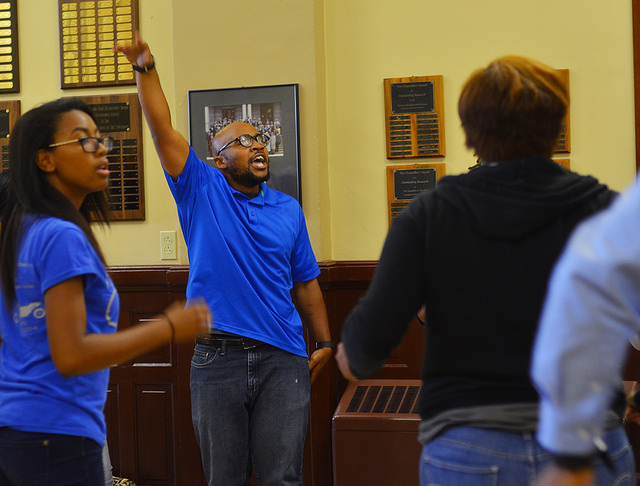
Via the Huffington Post: “It’s not always the slurs and the other out-and-out acts of racism. It’s the casual, everyday slights and insensitivities.”
“Casual everyday slights and insensitivities,” that’s the kind of racism that university students across the country want to bring to attention.
One student talks about how she is “tired of white people at Virginia Commonwealth University asking if they can touch her hair” or “if she knows the latest dance move.”
Another says that “groups of white guys stop talking when he walks by, and people grip their bags a little tighter.” And another says a white student a few seats away from her at West Virginia University got up and moved to the other side of the classroom.”
The students have named this kind of everyday racism, this kind of “low-grade insensitivity towards minorities.” They call it “microaggression.”
I am a white woman and I myself have engaged in such “casual, low-grade insensitivity” and I remember a particular example that sticks out in my mind.
It was about 10 years ago when I was in church and a black family came in next to me in the pew. Their three-year-old little boy happened to sit closest to me. He had a very short haircut and a very vulnerable looking head and neck and without thinking a thing of it, I reached out and began petting him on his head.
“Casual, low-grade insensitivity.”
The child squirmed a little bit and threw me a patient, embarrassed smile.
The scene stayed with me for a long while as it bothered me. Something was “wrong” with what I had done but I couldn’t put my finger on it. Then it hit me.
“I wouldn’t have done that to a white child.”
I wouldn’t have suddenly reached out to pet the head of a white child.
Why?
Because I wouldn’t have felt that I had the right to pet a white child on the head. After all, white children are the children of my peers—whereas black children are the children of people who are beneath me. As such, they have no choice but to receive the ministrations, even the so-called friendly, nurturing gestures of whites, whether they want to or not.
That’s how deep the inculcation goes. That’s how deeply inbred is my white superiority.
“It’s more the daily ‘microaggressions’ than the large situations,” said one of the protesting students. “It’s hard when it’s something you see every day.”
The students say they are exhausted, tired, and frustrated and I don’t blame them. Not one bit.
This “casual, everyday insensitivity” towards blacks comes from progressive, hip, don’t-call-me-a-racist everyday whites like me and extends all the way to white college students who are supposed to be expanding their minds, as well as to white professors and even white college presidents.
“Among other things, the student protesters around the U.S. are calling for greater diversity on the faculty, more spending on scholarships for minorities, more instruction on tolerance and sensitivity, and more resources such as cultural centers…. University administrators have responded by hosting diversity forums in recent days, or meeting to hear demands.”
It’s encouraging to hear that forums are being held.
Encouraging.
But I would say that more than forums need to be held.
I would say that unless and until every single white university administrator looks at his or herself through a microscope for their own version of seemingly innocent behavior—such as patting a black child on the head—then they will not have faced their own internal racism.
Even now, as I begin to see more and more of my own unconscious white privilege, I know I still have to work on it. But I have to work on it by looking at myself and how I think and behave—not by attending a forum.
I have to wish that if the young man whose head I pet all those years ago in that African Methodist Episcopal Church on that particular Sunday morning, happened to be reading this, I would respectfully walk up to him and respectfully ask for his forgiveness.
“It was not wrong of me to respond to you as a beautiful child,” I would want to say to him. “I don’t regret that. That was natural. But it was wrong of me to reach out and casually touch you without asking first, as if I had a right to. I embarrassed you and diminished you and treated you as if you were an object.”
I still remember my act—my every day act of racist behavior. It probably wouldn’t qualify as a “microaggression” so much as it would qualify as “benevolent racism”—racism wrapped up in benevolence so that I wouldn’t recognize it—but racism nonetheless.
In that sense, what the students are protesting runs deep. It goes to the heart and soul of racism—to the place where it starts—not always in the slurs and the other out-and-out acts of racism, but in the casual, everyday slights and insensitivities of “microagressions” and “benevolent racism.”
Relephant:
How Racism Survives.
~
Author: Carmelene Siani
Editor: Travis May
Photo: KOMUNews/Flickr


Read 2 comments and reply